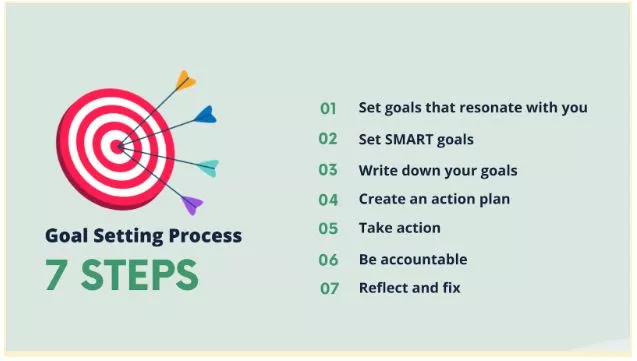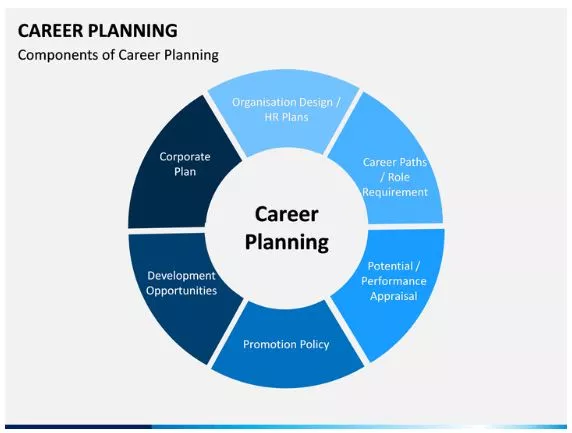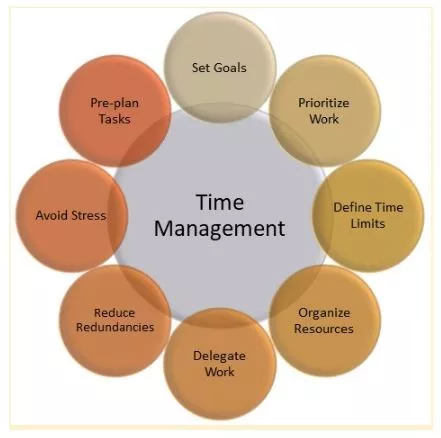
Hack the pack with a profound career management plan
25 August 2023
Navigating your career successfully in the highly competitive professional terrain requires the strategic finesse of career management. This blog delves into the core strategies that ensure personal growth and pave the way for unparalleled professional victory.
Thinking about your career's direction in the short, medium, and long term is a common and valuable exercise. While you may already recognise the skills, training, or certifications needed to advance in your field, translating these aspirations into reality can seem intricate.
This is where a Career Development Plan becomes a vital tool. It acts as your guide to success, allowing you to define your career objectives and pinpoint the actionable steps required to achieve them. If you are keen on advancing your career and need a starting point, a career development plan is your gateway to a profound career management plan.
Key takeaways
- The path to success begins with recognising career management's pivotal role in achieving personal and professional growth.
- Utilise a well-designed Career Development Plan (CDP) for setting and achieving career goals by aligning with personal strengths and values.
- Create clear, specific, and measurable goals. Regularly assess and adapt them to stay on the path to success.
- Prioritise skill enhancement, continually acquiring and applying new skills as a key factor in advancing your career.
- Be prepared to tackle career management challenges, including work-life balance, lack of clarity, skill gaps, resistance to change, and networking hurdles.
Defining your career path with a career development plan
A Career Development Plan, often abbreviated as CDP, is a structured and strategic approach to managing one's career and professional growth. It serves as a roadmap to help individuals set, pursue, and achieve their career goals and objectives. According to a Workplace Learning Report, statistics show that 94% of workers would stay longer at a company if their employers invested in their careers.
A well-designed Career Development Plan outlines a series of steps, goals, and actions that an individual should take to advance in their career, whether within their current job or in preparation for future opportunities.
This plan typically includes a comprehensive self-assessment to identify an individual's strengths, weaknesses, skills, interests, and aspirations. With this self-awareness, individuals can align their career path with their values and objectives.
Read more: How to create the perfect career management plan
Evaluate your career journey: Proven strategies for success
Embarking on a successful career management journey involves a strategic blend of personal growth and professional development. Here are key pointers to help you navigate this path effectively:
Goal setting
Setting clear goals is your first step towards career management. Dedicate 15 minutes of your day to personal goal setting, treating it as an essential part of your daily routine. Create monthly and yearly targets that are specific, measurable, and achievable. Ensure you keep your goals visible by setting up regular reminders on your calendar.
Regular evaluation and necessary adjustments are crucial. Think of your goals as your path to success. Sociocognitive theory suggests that the synergy between self-efficacy and goal setting enhances motivation and performance, creating a positive cycle, as demonstrated by Locke and Latham. (1)

Skill drill
To stand out from the crowd, prioritise skill development. Begin by evaluating your current skill set. Rate each skill on a scale of 10. Maintain scores of 8 or higher in each area and actively explore new skills to stay competitive.
Acquiring new abilities is not enough; you must also apply them in your professional life. Continual skill development is the path to career growth. According to a study, networking skills contribute positively to short-term outcomes, including career optimism, career satisfaction, job satisfaction, and emotional well-being.
Career vision
Where do you see yourself in five years? Your career vision is like a lighthouse guiding you to your professional destination. Define your vision by listing your field's highest and lowest job roles. Create a clear plan to reach your desired position.
Your career vision should be your north star, providing direction, motivation, and purpose in your professional journey. Additionally, the Harvard Business Review emphasises the significance of setting specific, measurable, and achievable goals, correlating goal-setting with improved performance and satisfaction

Embrace flexible roles
Unlike the majority, who stay confined to one role for an extended period, those who thrive are flexible. Changing one’s schedule decreased the likelihood of job stress by 20%. It increased the likelihood of job satisfaction by 62%. A study using from General Social Survey—Quality of Worklife demonstrates the ongoing importance of work flexibility for well-being.
Actively explore various job roles within your field, integrating new skills and adaptability. Professionals who can adapt to different roles have more significant opportunities for growth. Incorporating this simple yet powerful practice can be your ticket into "the pack."
Self-assessment and review
Periodically assess your progress by reviewing your goals, skills, and your position in your career journey. According to a study published in the International Journal of Environmental Research and Public Health, self-assessment of competencies credibly corresponds to students' perception of their career potential. This self-reflection allows you to identify areas for improvement, aligning your skills with your career goals. Regular reviews become essential in making necessary adjustments to your career management plan.
|
Did You Know? Approximately 20% of employees leave jobs due to a lack of career development. However, organisations investing in proper training and clear career paths can retain 78% of their workforce. Recognising and addressing these needs is key to fostering employee commitment and long-term retention within the organisation.(2) |
Networking and mentorship
Networking and mentorship are crucial for career development. A survey by the American Society for Training and Development found that 75% of executives consider mentoring vital to their career success. Connect with professionals, both inside and outside your organisation. Seek guidance from mentors who have walked the path you aim to follow. A strong support system can provide valuable insights and help you find the complexities of your career.
Constructive feedback
Seek and welcome constructive feedback from peers, mentors, and supervisors. Constructive criticism helps identify areas for improvement and personal growth. Act on the feedback you receive to refine your skills and approach. It's a valuable tool for continuous self-improvement. In a study, a vast majority of responses expressed that feedback is about improvement, with 89% of staff mentioning some sort of improvement as a purpose of feedback.
Time management
Effective time management is the foundation of career management. Prioritise tasks, set realistic deadlines, and allocate time to focus on your goals. Avoid procrastination and minimise distractions to maximise your productivity. Utilising your time wisely is a crucial factor in achieving your career objectives. Additionally, the Pomodoro Technique, a time management method developed by Francesco Cirillo, advocates breaking work into intervals (typically 25 minutes) separated by short breaks. This technique aims to enhance focus and productivity, supporting the idea of allocating time to specific tasks.(3)

Discover career management challenges
While a well-structured career management plan is essential for professional success, it's important to acknowledge that the journey is only sometimes smooth sailing. Challenges and obstacles can arise, and being prepared to tackle them is crucial. Here, we explore some common challenges individuals face in their career management journey and offer strategies to overcome them:
Work-life balance
- Challenge: Balancing personal and professional commitments can be demanding, leading to burnout and stress.
- Solution: Set boundaries, prioritise self-care, and manage your time effectively to balance work and personal life.
Lack of clarity
- Challenge: Some individuals may struggle with a lack of clarity about their career goals and aspirations.
- Solution: Take time for self-assessment, seek guidance from mentors, and explore various roles to gain more clarity about your career path.
Skill gaps
- Challenge: Identifying and addressing skill gaps can be challenging, especially when the job market is constantly evolving.
- Solution: Continuously assess your skill set, seek training or courses to bridge gaps, and stay updated with industry trends.
Resistance to change
- Challenge: Changing roles or industries can be met with resistance and fear of the unknown.
- Solution: Adopt change as an opportunity for growth. Leverage your existing skills while adapting to new roles.
Networking hurdles
- Challenge: Building a strong professional network can be daunting, especially for introverts.
- Solution: Take small steps, attend industry events, and use online platforms to connect with professionals. Seek mentorship to guide your networking efforts.
Overcoming setbacks
- Challenge: Facing setbacks or failures can be disheartening and impact motivation.
- Solution: View setbacks as learning experiences, use them to refine your approach, and stay resilient in pursuing your goals.
Final thoughts
To set yourself apart and join the ranks of the successful, recognise the importance of personal growth, continuous skill development, and adaptability. As you undertake your journey, acknowledge that challenges may arise.
However, these roadblocks can be overcome with effective time management, self-assessment, and the guidance of mentors. Your path to success is illuminated by clear goals, a commitment to skill enhancement, and the flexibility to drive new roles.
Contact us today to explore how our tailored services can empower your employees. A path to a brighter professional future starts here!
Related reading: Employee engagement strategies for a better workplace environment
FAQs
1.What are some practical tips for effective time management in career development?
Effective time management in career development includes prioritising tasks, setting SMART (Specific, Measurable, Achievable, Relevant, Time-bound) goals, and eliminating distractions. It's about making the most of your time to work towards your career objectives.
2.What are the benefits of opting for flexible roles in your career?
Seizing flexible roles in your career opens up more opportunities for growth. It allows you to adapt to different positions and integrate new skills, making you a more versatile and valuable professional.
3.Why is constructive feedback important in career management?
Constructive feedback is vital as it helps individuals identify areas for improvement and personal growth. Actively seeking and implementing feedback from peers, mentors, and supervisors is a valuable tool for continuous self-improvement.
4.Is it ever too late to create a career development plan?
It is never too late to create a career development plan. People at any stage of their careers can benefit from setting goals, acquiring new skills, and advancing their professional growth.
5.Can a career development plan help me change fields or industries entirely?
Yes, a well-structured career development plan can be instrumental in helping you transition to a new field or industry by outlining the necessary steps and skill development required for the change.





